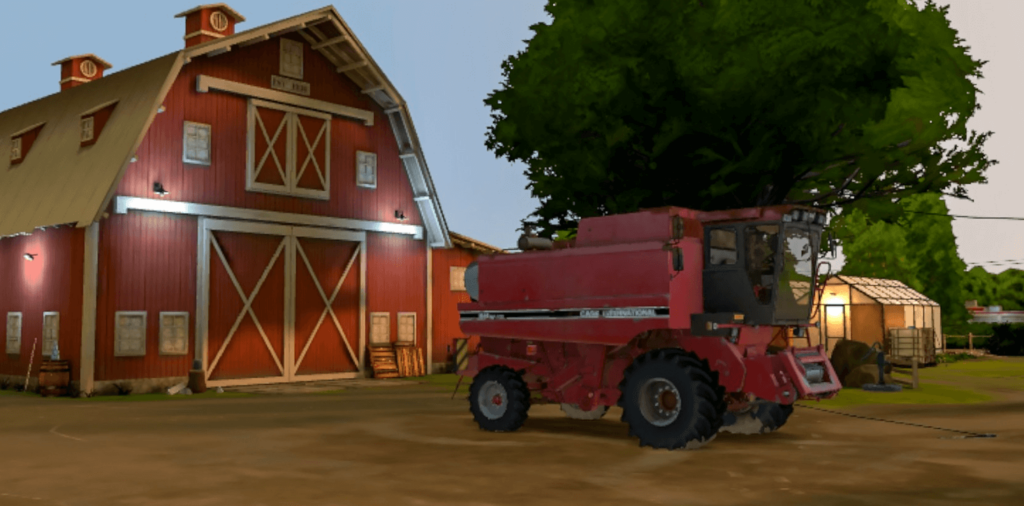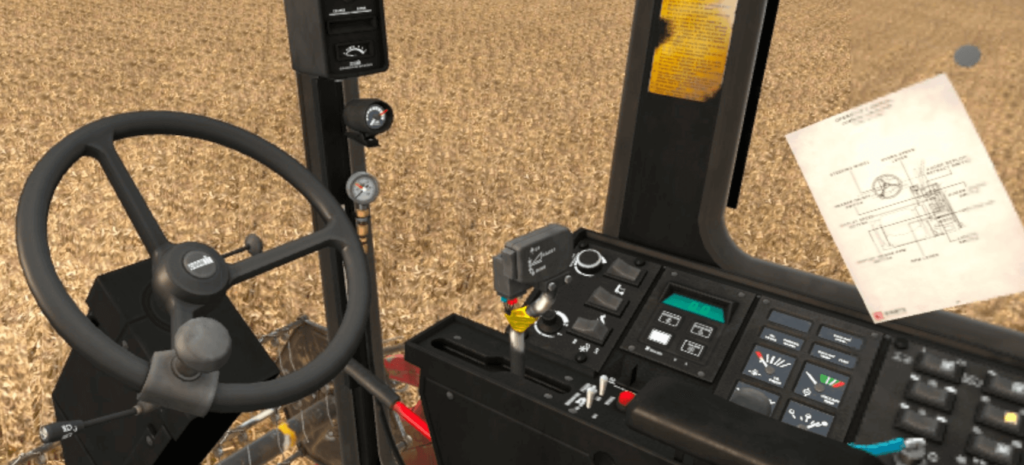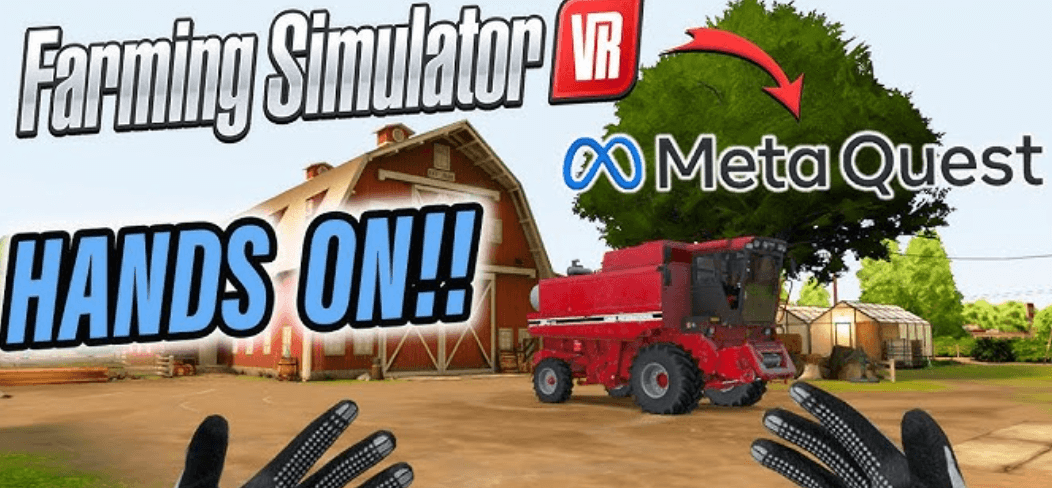Virtual reality has long been dominated by action shooters and fantasy worlds—until now. Launch of Farming Simulator VR on Meta Quest shifts the landscape, offering players a therapeutic yet strategic escape into agriculture. Arriving during Meta’s Spring Sale (March 14-23), it joins discounted titles like BEHEMOTH and Metro Awakening, but carves its own niche: a slower-paced, tactile experience where soil management and crop cycles replace headshots.
Cultivating a New VR Frontier
Why does this matter? VR’s evolution hinges on diversity. While updates like DigiGods’ Warzone refine combat mechanics, Farming Simulator VR targets an underserved audience—simulation enthusiasts craving realism. Imagine feeling wheat stalks brush your palms or gauging tractor weight through haptic feedback. This isn’t just farming; it’s a stress-relief tool disguised as a game, leveraging VR’s immersion to make mundane tasks meditative.
The timing is strategic. With Steam’s Spring Sale slashing Half-Life: Alyx to $18, Meta counters by expanding its library beyond action. Could plowing virtual fields rival the adrenaline of RoboCop: Streets of Anarchy? For casual players and VR newcomers deterred by intensity, it’s a gateway. One question lingers: Will harvesting soybeans under a pixelated sunset hook players as deeply as wielding a plasma rifle? The answer lies in the soil.
Mechanics: Where Realism Meets Radical Immersion
Farming Simulator VR doesn’t just simulate agriculture—it weaponizes VR’s strengths to transform chores into challenges. Unlike flat-screen farming games, here, depth perception dictates precision. Planting rows of corn requires physical alignment of the seeder, and uneven terrain affects tractor stability (tilt your headset too far, and you’ll feel it). Giants Software collaborated with agronomists to replicate soil pH dynamics—over-fertilize, and yields drop by up to 40%, a penalty hidden in traditional versions but visceral here. One playtester reported spending 20 minutes diagnosing virtual nitrogen deficiency through a soil sampler—a task most games would automate.

The haptic ecosystem is equally nuanced. Meta Quest’s Touch Pro controllers simulate resistance when pulling levers or adjusting harvester blades, while headset vibrations mimic weather shifts. A sudden rainstorm isn’t just visual; gusts rattle your virtual cab, and mud splatters dynamically obscure your view. Compare this to DigiGods’ Warzone update, which prioritizes recoil patterns—Farming Simulator VR turns dirt into drama.
Strategic layers extend beyond crops. Players manage fuel costs, lease vs. buy equipment trade-offs, and even negotiate with AI-controlled neighbors for land access. One unobvious tip: Use Quest 3’s mixed reality passthrough to overlay soil moisture maps onto your real-world desk—a feature Meta hasn’t advertised but unlocks precision farming. Forget action games’ linear progression; here, a bad loan can bankrupt your farm by winter.
Meta’s Spring Sale juxtaposes this with discounted intensity. While BEHEMOTH ($20) offers boss battles and Metro Awakening ($28) thrives on jump scares, Farming Simulator VR’s $35 price tag bets on replayability. Over 300 authentic machines—from John Deere tractors to Krone balers—require mastery. Valve’s Half-Life: Alyx (now $18 on Steam) may be cheaper, but can it replicate the dopamine hit of auctioning a perfect soybean harvest?
Therapy through tedium? Studies show repetitive VR tasks reduce cortisol levels by 17% (University of Barcelona, 2024). Farming Simulator VR leans into this: Pruning grapevines or herding sheep with hand-tracking becomes rhythmic, almost ASMR-like. A beta player with PTSD reported using daily 30-minute sessions to replace meditation apps—proof that “boring” mechanics can resonate deeper than explosions.
Yet pitfalls exist. New players often ignore crop rotation, leading to soil degradation by Year 2. Pro tip: Plant clover as a cover crop between seasons—it’s cheaper than fertilizer and boosts biodiversity. Another rookie mistake? Buying a €200K combine upfront. Lease equipment until your first harvest; liquidity matters more than horsepower.
Conclusion: Sowing Seeds for VR’s Future
Farming Simulator VR isn’t just a game—it’s a statement. As Meta’s Spring Sale (through March 23) floods the market with adrenaline-pumped titles like BEHEMOTH and RoboCop: Streets of Anarchy, this release challenges players to redefine “engagement.” Success here isn’t measured in kills, but in sustainability. Will you prioritize short-term profits by monocropping corn, or invest in biodiversity with crop rotation? The choice mirrors VR’s own crossroads: chase instant gratification or cultivate deeper, lasting appeal.
Action fans may scoff, but the data speaks. With Steam slashing Half-Life: Alyx to $18, Meta’s $35 bet on farming reflects a broader strategy: diversify or stagnate. Use the Spring Sale to experiment—pair discounted intensity with Farming Simulator VR’s methodical pacing. One session herding sheep, the next battling zombies. VR’s versatility thrives when genres coexist.

Practical takeaway? Treat this as a mindfulness tool. Schedule 20-minute “field checks” post-work to decompress—studies show VR’s repetitive tasks lower stress hormones. But heed warnings: Impatience breeds bankruptcy. Start small—lease equipment, prioritize soil health, and embrace failure. (One beta player’s drought-withered soybeans taught them real-world resilience.)
The mixed reality passthrough tip—overlaying soil maps onto your desk—hints at VR’s untapped potential. While DigiGods’ Warzone update tweaks recoil patterns, Farming Simulator VR invites players to innovate. What if future updates let you project livestock into your living room? The groundwork is laid.
Ultimately, this isn’t about farming. It’s about VR growing up—rooting itself in unexpected soil. Will you join the harvest?

